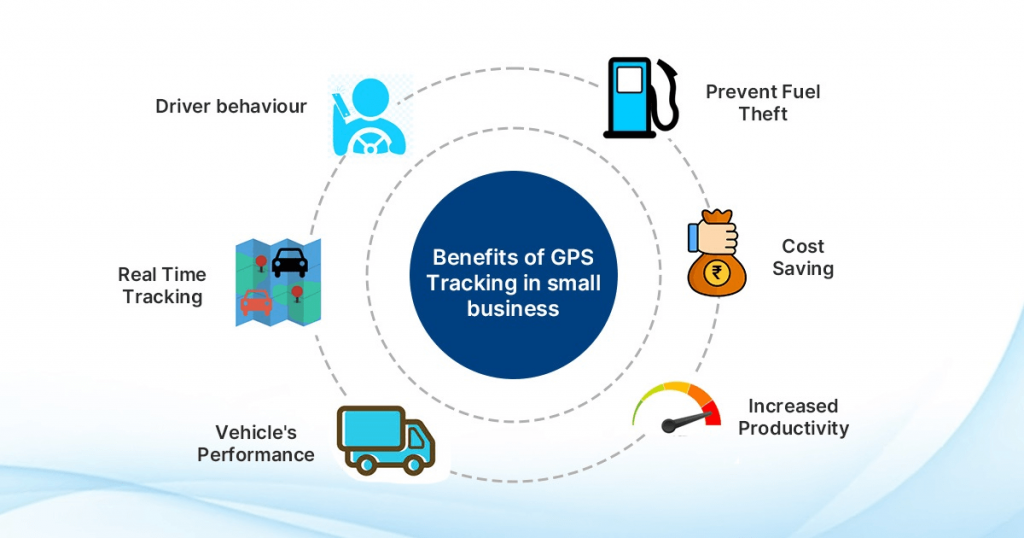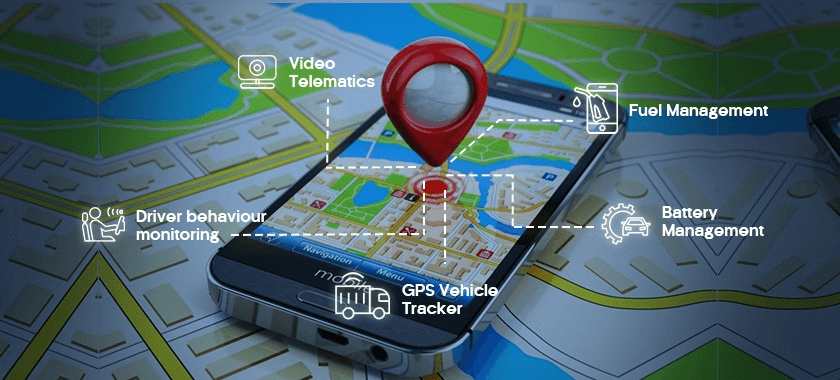7 Ways GPS Tracking Can Revolutionize Small Business Operations
In today’s fast-paced business environment, small businesses need every possible advantage to stay ahead of the competition. That’s where GPS tracking comes in. This innovative technology has the power to revolutionize small business operations in more ways than one.
With GPS tracking, small businesses can efficiently manage their fleets and track their vehicles in real time. This not only enhances driver safety but also improves fuel efficiency and reduces operational costs. Additionally, GPS tracking enables businesses to optimize their routes, ensuring timely deliveries and satisfied customers.
But the benefits don’t stop there. By incorporating GPS tracking into their operations, small businesses can effectively monitor their assets and ensure their security. From valuable equipment to expensive inventory, GPS tracking provides real-time location updates, helping business owners keep a close eye on their assets.
Moreover, GPS tracking allows for more efficient scheduling and dispatching, leading to improved productivity and decreased response times. By accurately knowing the location of their teams and resources, small businesses can streamline their operations and provide better service to their customers.
In essence, GPS tracking is a game-changer for small businesses, empowering them to increase efficiency, reduce costs, and provide exceptional service to their customers. So why not embrace this revolutionary technology and take your small business to new heights of success?
Please note that without a specified brand voice, I have written the introduction in a neutral tone.
Benefits of GPS Tracking for Small Businesses
GPS tracking offers numerous benefits for small businesses, ranging from improved fleet management to enhanced customer service. Let’s explore the top 7 ways GPS tracking can revolutionize small business operations.

1. GPS Tracking Statistics and Trends
Before diving into the specific benefits, let’s take a look at some GPS tracking statistics and trends. According to a recent study, businesses that implemented GPS tracking saw a significant decrease in fuel costs, with an average reduction of 22%. Moreover, 75% of companies reported improved productivity and efficiency after adopting GPS tracking systems. These statistics highlight the transformative impact of GPS tracking on small business operations.
2. Improved Fleet Management
For small businesses that rely on a fleet of vehicles, efficient fleet management is essential. GPS tracking allows businesses to monitor their vehicles in real-time, providing valuable data on driver behavior, fuel consumption, and vehicle maintenance needs. By analyzing this data, small businesses can identify areas for improvement, implement driver training programs, and optimize routes to reduce fuel costs and increase overall efficiency.
Furthermore, GPS tracking enables small business owners to track the exact location of their vehicles at any given time. This not only helps prevent unauthorized vehicle use but also assists in locating stolen vehicles quickly. By ensuring the safety and security of their fleet, small businesses can protect their assets and minimize disruptions to their operations.
3. Enhanced Employee Productivity
GPS tracking can significantly enhance employee productivity by providing accurate data on employee whereabouts and activities. With real-time location updates, small business owners can track the progress of their employees’ tasks, ensuring they are working efficiently and effectively. This level of visibility also helps in identifying and addressing any underperforming areas, leading to improved overall productivity.
Furthermore, GPS tracking can assist in optimizing employee schedules and dispatching resources. By knowing the exact location of each team member, small businesses can allocate tasks based on proximity, reducing travel time and improving response times. This streamlined scheduling and dispatching process not only saves time but also enables small businesses to handle more clients and increase their revenue.
4. Improved Customer Service
Customer satisfaction is paramount for small businesses looking to build a strong reputation and secure repeat business. GPS tracking plays a crucial role in improving customer service by enabling small businesses to provide accurate and reliable delivery estimates. With real-time tracking, businesses can inform customers of the exact location of their deliveries, ensuring transparency and reducing the likelihood of missed or delayed deliveries.
Moreover, GPS tracking allows businesses to optimize their routes based on real-time traffic information. By avoiding congested areas and choosing the most efficient routes, small businesses can ensure timely deliveries and happier customers. This level of reliability and efficiency fosters trust and loyalty, setting small businesses apart from their competitors.
5. Theft Prevention and Reduced Insurance Costs
Small businesses often face the risk of theft, whether it be valuable equipment or expensive inventory. GPS tracking provides a powerful solution to prevent theft and minimize losses. By equipping assets with GPS tracking devices, business owners can receive real-time location updates, enabling them to track and recover stolen items quickly.
Furthermore, GPS tracking can also lead to reduced insurance costs for small businesses. Insurance companies recognize the enhanced security provided by GPS tracking and often offer discounted premiums for businesses that have implemented this technology. This not only saves money but also provides peace of mind knowing that valuable assets are protected
6. Streamlined Operations with Real-Time Tracking and Reporting
Efficient operations are crucial for small businesses to thrive. GPS tracking offers real-time tracking and reporting features that streamline operations and improve overall efficiency. By accessing up-to-date data on vehicle locations, small businesses can make informed decisions, optimize routes, and allocate resources more effectively.
Real-time tracking also allows businesses to respond quickly to unexpected events or emergencies. Whether it’s rerouting a vehicle in response to a traffic accident or sending the nearest team member to handle an urgent task, GPS tracking ensures a prompt and efficient response.
Additionally, GPS tracking systems provide comprehensive reports and analytics, allowing small businesses to gain insights into their operations. From fuel consumption to driver behavior, these reports help identify areas for improvement and implement strategies to enhance efficiency and reduce costs.

7. Choosing the right GPS tracking system for your small business
Now that you understand the numerous benefits of GPS tracking technology for your small business, it’s essential to choose the right system that meets your specific needs and requirements. Here are a few factors to consider when selecting a GPS tracking system:
- Accuracy and reliability: Look for a GPS tracking system that offers high accuracy and reliable performance. The system should provide real-time updates and precise location data to ensure effective monitoring and management.
- Ease of use: Consider a user-friendly GPS tracking system that is easy to install and navigate. It should have a clear interface and intuitive features that allow you to access the information you need quickly.
- Customization options: Look for a GPS tracking system that can be customized to fit your specific business needs. It should offer flexibility in terms of features, reporting capabilities, and integration with other systems or software.
- Scalability: Choose a GPS tracking system that can grow with your business. It should be able to accommodate additional vehicles or assets as your business expands, without compromising performance or efficiency.
- Cost-effectiveness: Consider the cost of the GPS tracking system, including upfront expenses and ongoing fees. Compare different options and choose a system that provides a good balance between cost and features.
By considering these factors and conducting thorough research, you can select the right GPS tracking system that aligns with your small business goals and objectives.
Implementing GPS tracking in your small business
Once you have chosen the right GPS tracking system for your small business, it’s time to implement it effectively. Here are a few steps to guide you through the implementation process:
- Set clear objectives: Define your goals and objectives for implementing GPS tracking in your small business. Whether it’s improving delivery efficiency, enhancing customer service, or reducing fuel costs, having clear objectives will help you stay focused and measure the success of your implementation.
- Communicate with your employees: Introduce the GPS tracking system to your employees and explain how it will benefit them and the business as a whole. Address any concerns or misconceptions they may have and emphasize the positive impact it will have on their productivity and accountability.
- Provide training and support: Ensure that your employees are properly trained on how to use the GPS tracking system. Offer ongoing support and assistance to address any questions or issues that may arise during the implementation process.
- Monitor and analyze the data: Once the GPS tracking system is up and running, regularly monitor and analyze the data collected. Use this data to identify areas for improvement, make informed decisions, and measure the success of your implementation.
- Continuously improve and adapt: GPS tracking technology is continuously evolving, so it’s essential to stay updated with the latest advancements and features. Continuously seek ways to improve your operations and adapt the GPS tracking system to meet your changing business needs.
By following these steps, you can effectively implement GPS tracking technology in your small business and reap the benefits of increased efficiency and success.
Conclusion: The future of GPS tracking in small businesses

In conclusion, implementing GPS tracking technology can drastically improve the efficiency and success of your small business. With its ability to monitor and optimize fleet routes, provide real-time data on assets or vehicles, track employee whereabouts, improve driver behavior, and enhance customer service, GPS tracking systems have become indispensable tools for small businesses.
By leveraging GPS tracking technology, you can save time and money by optimizing delivery routes, enhance customer service and satisfaction by providing real-time updates, improve employee productivity and accountability, enhance asset security and theft prevention, and ultimately drive the success and growth of your small business.
As technology continues to advance, the future of GPS tracking in small businesses looks promising. With increased accuracy, improved integration capabilities, and enhanced features, GPS tracking systems will continue to revolutionize the way small businesses operate and compete in the market.
So, if you’re a small business owner looking to boost efficiency and achieve greater success, consider implementing GPS tracking technology. It’s a wise investment that can propel your business forward in today’s competitive landscape.
Pictor Telematics: Leading the Way in GPS Tracking and Telematics Solutions

Leave a Reply